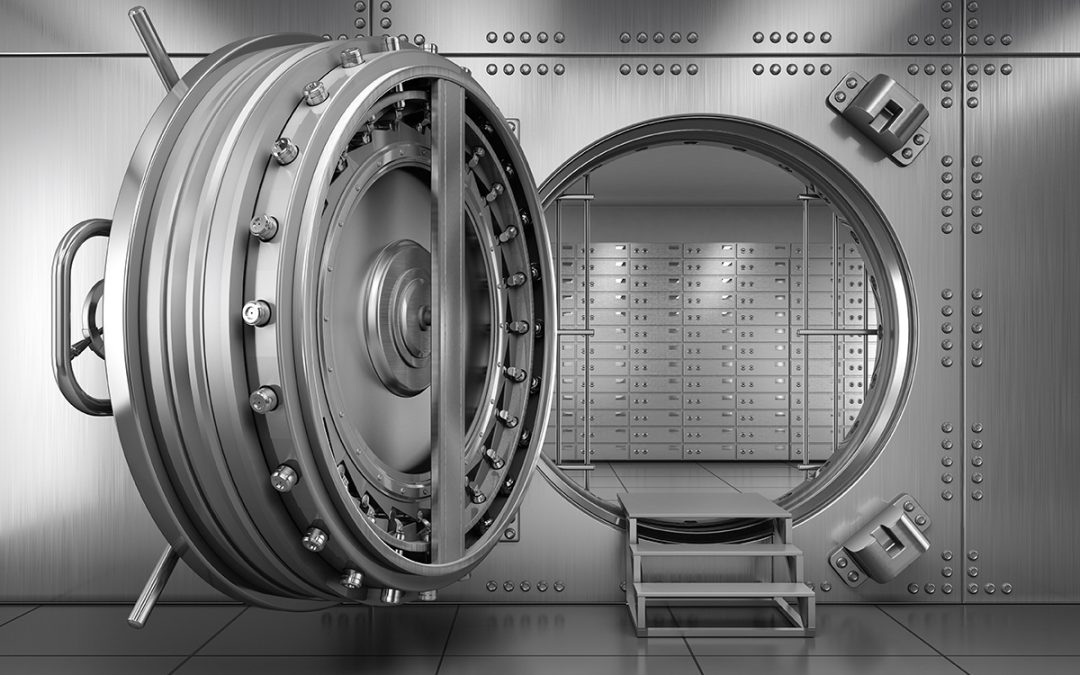7 Safety Deposit Box Security Factors You Must Know Before Renting
Safety Deposit Box Security is an important factor when looking to rent a box.
But when safety deposit centres suffer setbacks from burglary, and safety deposit heists, you begin to wonder where else to turn to.
There is no hard and fast rule in security. But proactive safety deposit box security can save the day and stall any potential burglary and heist.
Why is Physical Security a Game Changer for Safety Deposit Box Security?
Why do armoured trucks have security escorts?
Or why do VIPs need personal protection, even in bullet-proof cars? It’s all about loss prevention.
Physical security is vital for your safety deposit centre’s integrity.
Look for centres with:
- On-site SIA badge security.
- Stationed security 24/7.
Most crimes occur when targets are unprotected, like at night, at weekends, and on bank holidays. Physical security ensures your valuables are safe round the clock.
Remote monitoring
CCTVs have become the standard, raising the question: Is anyone watching in real-time, not just after incidents?
Centres require a special CCTV monitoring licence, often leading to footage being reviewed post-event.
However, real-time remote monitoring can quickly escalate suspicious activities, significantly reducing the duration and impact of thefts and burglaries.
Your centre is one of the most secure if it has remote monitoring in place.
7 Safety Deposit Box Security Features to Check Before Renting
These security features will boost your confidence in your safety deposit centre’s security, even before you sign up.
1. Vault Security
Vaults are assessed by the European EN1143-1 resistance grade, with ratings from 0 to 7. With 7 being the toughest.
Centres with higher-rated vaults often have comprehensive insurance coverage.
Interestingly, the vault’s security rating influences safety deposit box insurance premiums.
Potentially saving you money and ensuring sufficient compensation if needed.
2. Safety Deposit Box Security
How you access your safety deposit box is crucial. Traditionally, banks required dual access: a guard key and your customer key.
Some even kept a blank key for duplicating if you lost yours. This method is secure but poses risks, as the guard key can open all boxes, leading to potential disputes if items go missing.
Today, some safety deposit box insurance providers cover employee theft, but many have moved away from guard keys to reduce liability.
Modern security measures you should look for include:
- Handprint access
- Biometric verification
- Personal Identification Number (PIN)
These advanced methods enhance security without the drawbacks of traditional guard keys.
3. Operational Security
Gaining access to the vault—beyond just your safety deposit box—requires considering four key aspects of operational security:
- Discretionary Access & ID Verification: A centre should have efficient ID and access management to ensure both employee safety and customer satisfaction. Automated access logs are preferable to manual sign-ins for every visit.
- CCTV Surveillance: It’s important to know the extent of surveillance. Ask how far from the centre the CCTV coverage extends to ensure comprehensive monitoring.
- Physical Security: Confirm if there are SIA-licensed guards on-site 24/7. Trained guards can handle and escalate situations as needed.
- Multiple Entry Access Security: Modern security involves more than just keys. Look for centres offering multiple access levels, such as PINs, biometrics, and handprint scanners, for enhanced security.
Key questions include:
- How effectively can the centre manage access and ID verification?
- How extensive is the CCTV surveillance around the centre?
- Are there always licensed guards on duty?
- What is the average time from signup to box usage?
Efficient management of access and identification ensures safety without inconveniencing customers. While advanced access methods offer better security than traditional guard keys.
4. Private Viewing Room Security
Safety deposit centres generally stay out of what you store in your box, beyond issuing terms and conditions that outline prohibited items. After passing ID and anti-money laundering (AML) checks, you’re considered low risk unless proven otherwise.
Given the high-security environment of a safety deposit centre, there might not always be a space where you can privately inspect your box contents. This is where the importance of a private viewing room comes into play. It’s essential for maintaining your privacy and dignity during visits.
Before deciding to rent a box, verify if the centre offers a private viewing room that is free from surveillance cameras. This ensures your safety and the confidentiality of your valuables during inspection.
5. Insurance Security
Insurance offers an extra layer of protection for your valuables, but not every centre qualifies for it. To determine if your chosen centre is eligible for insurance, here’s what to do:
- Check Listings: Look for your centre on reputable safety deposit box insurance websites. Tools like the Noble Insurance ‘find a centre‘ feature can help you check if insurance is available for your centre.
- Specialist Providers: Insurance companies specialising in safety deposit boxes often have a list of approved centres.
- FCA Registration: Centres registered with the Financial Conduct Authority (FCA) are more likely to be eligible for insurance. It’s wise to consult your provider or any well-known safety deposit box insurance company.
The amount of coverage you can receive depends on several factors, including the security grade of the centre’s vaults and doors.
The maximum coverage available in the market is £500,000. If you require more protection, consider renting an additional box.
6. Third-Party Access Security
Life changes can affect who you want to have access to your safety deposit box.
Whether it’s due to divorce, separation, or the passing of a loved one, you might need to revise access rights.
Key considerations include:
- Flexibility in Access Changes: Can the centre adjust access permissions according to your changing needs? The centre must allow you to modify who has access to your box easily.
- Immediate Freezing of Access: In urgent situations, being able to call your centre to freeze access to your box until you can personally visit can prevent the unauthorised removal of your valuables by an estranged partner or family member.
- Supervised Withdrawals: If the person you’re removing has items in the box, find out if the centre supports supervised withdrawals, allowing you to either oversee their retrieval of items or remove your possessions first.
Ensuring your centre offers these capabilities can protect your investments and maintain control over your valuable assets during life’s unpredictable moments.
7. Accessibility and Convenience
When choosing a safety deposit centre, consider how easily and often you can access your valuables.
- Opening Hours: Determine the centre’s operating hours. Are they limited to weekdays, or can you access your box anytime?
- Holiday and Weekend Access: Check if the centre closes on bank holidays and weekends. The most accessible centres remain open 24/7, 365 days a year, catering to those who need to reach their items during off-peak times.
- Extended Operating Hours: While most centres operate for 8 to 9 hours daily, top-performing centres, like ours, offer up to 17 hours of access per day.
Selecting a centre with extensive accessibility ensures you can get to your valuables when it’s most convenient for you, not just during traditional business hours.
For more information on Safe Deposit Box Security features contact Soteria Safes.
The original version of this article was published in www.stonewallvaults.co.uk


Recent Comments